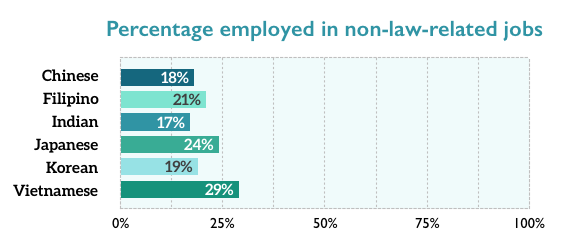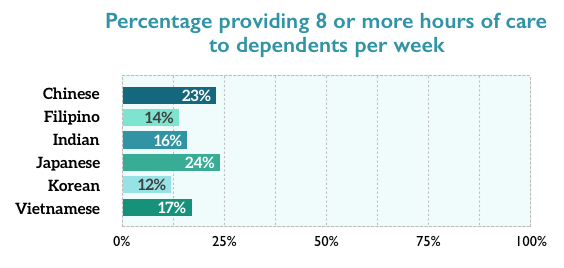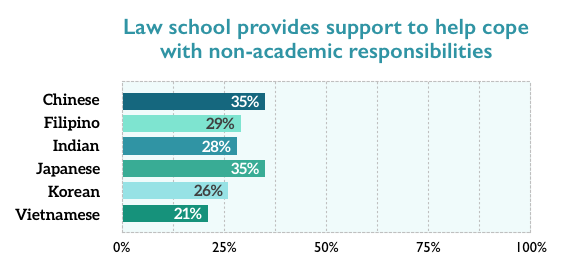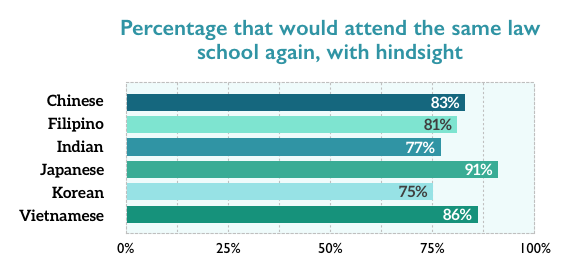This final installment based on the Report, Diversity Within Diversity: The Varied Experiences Of Asian And Asian American Law Students, highlights findings related to the law student experience.
LSSSE asks respondents about how they spend their time, in the context of their studies and beyond. Employment can be a very useful part of the law school experience if it has relevance to the practice or study of law. Some employment, however, is motivated by necessity, and not necessarily a desire to foster one’s professional development. LSSSE respondents are asked to stipulate whether employment is law related or non-law-related.
Among the six subgroups, Vietnamese respondents were most likely to report being employed, with the disproportions being particularly apparent in non-law-related jobs. They were also most likely to report working eight or more hours per week in either setting. The relatively high proportions of employment, particularly in non-law-related jobs, raises questions about the role of financial pressures among Vietnamese law students.

Vietnamese respondents were also most likely to report spending time providing care to dependents residing in the same household, with Vietnamese and Japanese respondents reporting the largest time commitment. Vietnamese respondents were least likely to report feeling as if their law school helped them cope with their nonacademic responsibilities.


Asian respondents overwhelmingly reported favorable relationships within their law school, but Vietnamese respondents were noticeably more likely to state that other students were “unfriendly and unsupportive.” Korean respondents had the least favorable perceptions of their professors, with less than half harboring the most intensely positive feelings.
Vietnamese respondents were least likely to report feeling as if they were acquiring a broad legal education, with one-in-5 expressing an unfavorable perception. In that vein, almost one-quarter rated their law school experiences fair or poor, again the highest proportion. Interestingly, given these perceptions, 86% of Vietnamese respondents stated that they would probably or definitely attend the same law school again, if given the benefit of hindsight. Only Japanese respondents had a higher proportion expressing this ostensibly favorable assessment. On the other hand, Korean respondents were least likely to state that they would attend the same law school again, with 1-in-4 stating expressing regret.

Conclusion
The experiences of Asian subgroups within the LSSSE pool varied, belying the prevailing assumptions about the Asian monolith. Their backgrounds, informed in large part by immigration patterns, differed markedly. There were vast disparities in expected law school debt. There were differences in how they spent their time, and how they perceived the law school experience. In the end, the distinctive aspects of each group manifested. As law schools work to ensure that their programs benefit all students, the experiences of subgroups within our broad classifications (racial/ethnic and others) should also be considered.
(Photo courtesy of Southwestern Law School)
Save
Save
Save
Save
Save
Save
